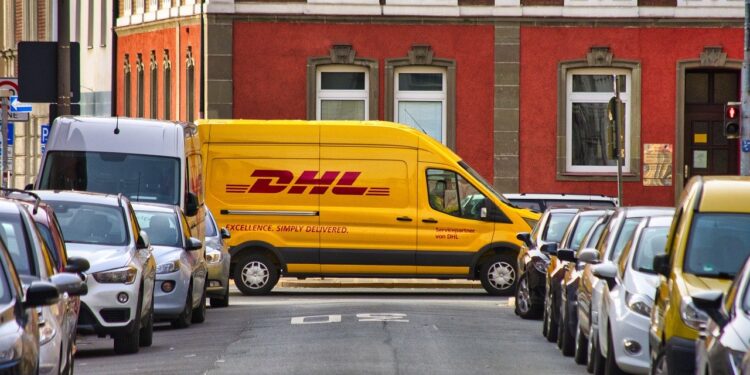What Insurance Does a Courier need?

Couriers driving in the UK need a special type of vehicle insurance called ‘hire and reward’. According to NimbleFins, who are courier insurance experts, while the cost of courier hire and reward cover can easily be 4-5X the cost of regular car insurance, it is essential to have in place before starting work to stay legal. Without it, a courier would be driving illegally.
Hire and reward courier insurance
Hire and reward is a type of vehicle insurance that covers motorists using a vehicle in return for payment. Normal social, domestic and pleasure (SD&P) vehicle insurance does not cover hire and reward driving. Neither does ‘business use’ vehicle insurance. As a result, to drive legally on the road, couriers need to ensure they have hire and reward insurance. (Taxis also need hire and reward insurance, as do moving companies, as they also drive in return for payment.)
Courier hire and reward insurance can come in two forms: a ‘full-time’ courier insurance policy that also includes SD&P cover or as a ‘part-time’ pay-as-you-go cover that is supplemental to SD&P cover.
A full-time policy includes both social, domestic and pleasure (SD&P) and hire and reward cover, so a motorist is protected whether delivering food/goods or otherwise. Top-up, pay-as-you-go hire and reward, on the other hand, utilizes a driver-friendly ‘pay-as-you-go’ payment programme, only charging for cover when a driver needs it.
Pay-as-you-go courier insurance can be more cost effective especially for part-time couriers or those only engaged in courier work for a short period of time.
However, many of the UK’s top SD&P vehicle insurers will invalidate a policy if the policyholder works as a courier and buys separate top-up hire and reward cover. Anyone going to route of top-up cover must clear this with their underlying SD&P provider.
Goods in transit
Goods in transit insurance protects items being transported in a vehicle. For a courier, it protects the parcels or other items against damage (e.g. in a road traffic accident) or theft (e.g. when the vehicle is parked while the driver grabs lunch).
Whether or not goods in transit insurance is needed depends on the types of goods being transported as well as the company for which a courier is working. For example, a fast food delivery driver would not need goods in transit insurance. However, a driver working in logistics that transports goods with a high value would certainly want or need this cover.
Public Liability
Public liability covers couriers for any third party injury or property damage caused by the courier while on the job. For example, a courier could accidentally leave a parcel on the pavement which a pedestrian subsequently trips over. Or a courier could drop a heavy parcel at the threshold, which falls and cracks an expensive tile floor at a customer’s entryway.
While many courier businesses won’t require drivers to hold a public liability policy, it’s still worth considering. AXA reports that the average public liability settlement is around £13,500, so when things do go wrong it can end up being costly. And policies start from only around £50 a year.
Car courier insurance
People using their cars for courier work can buy a full-time courier policy to cover both their courier work and their personal driving. According to NimbleFins, a full-time courier policy can easily cost well over £2,000 a year, meaning a driver could pay 4X the cost of regular comprehensive SD&P car insurance or more.
An alternative is buying a top-up cover like the one offered by Zego. This can be especially cost effective for a driver who might not need hire and reward insurance for an entire year. Or who only works as a courier part time.
Before taking out top-up courier insurance, however, the car driver should run this by their SD&P provider as many popular car insurance companies don’t accept a car they’ve insured to be used for courier work, even if this work is protected under a separate insurance policy.
Motorbike courier insurance
Motorbikes can be easier to insure for courier work than cars, and cheaper as well. But motorbike courier insurance can still cost nearly £200 a month for comprehensive cover.
Van courier insurance
Similarly, it can be easier to buy courier insurance for a van. This is because business van insurance companies are accustomed to covering the added risks of using a vehicle for commercial purposes. For example, the risks of driving on unfamiliar roads, drivers spending long hours on the road, potentially stopping roadside, and more.
The cost of courier insurance for a van can also be less than for a car.
In Summary
Couriers must ensure they’re covered by special hire and reward vehicle insurance, or else they’ll be driving illegally. Courier insurance can be expensive, so part-time or temporary drivers might want to investigate top-up, pay-as-you-go options instead of buying an annual hire and reward courier policy. Finally, those needing an annual policy and able to pay the while premium upfront can potentially save 20% or more on their policy, by eliminating the interest charges associated with monthly payments in most cases.









